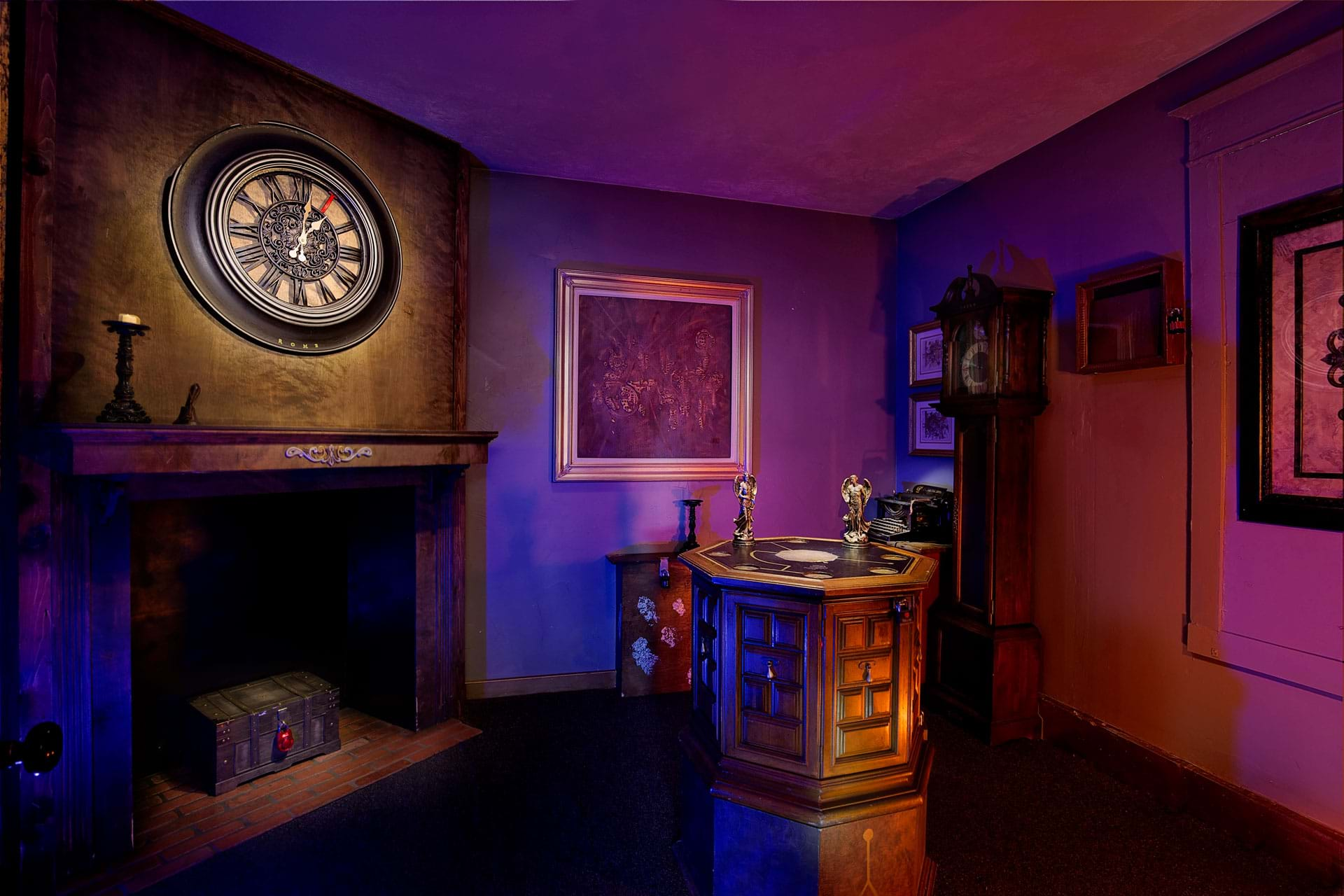Team Techniques: Exactly How to Team up Efficiently in an Escape Area
Browsing the complexities of an escape room necessitates greater than simple excitement; it needs a well-coordinated technique based in clear communication, critical function tasks, and adept time administration. Teams have to actively listen per participant's insights, appoint functions that straighten with private strengths, and maintain normal check-ins to guarantee focus and avoid redundancy. By fostering an atmosphere that values communication and versatility, teams can dramatically increase their performance and success prices. The nuances of these methods can transform the experience, however how exactly can they be carried out to maximize the capacity for success?
Establish Clear Communication

To assist in clear interaction, it is necessary to designate a central factor of call for information circulation. Short, focused updates from each group participant can maintain the team educated without overwhelming them with info.

Appoint Functions Strategically
While clear interaction sets the foundation for reliable team effort, assigning duties strategically ensures that each group member's strengths are utilized successfully. In an escape area scenario, the time-sensitive and intricate nature of challenges demands a well-organized strategy to task delegation. By recognizing and leveraging private expertises, teams can optimize their analytical capacities and improve total performance.
Someone with a keen eye for detail might excel in finding covert items, while a rational thinker might be much better fit to fixing problems. This duty commonly calls for solid business and interpersonal skills.
Second, guarantee that roles are flexible and adaptable. As new obstacles arise, the group needs to have the ability to pivot, reallocating tasks as required. This adaptability aids keep energy and avoids bottlenecks that could take place as a result of inflexible function tasks.
Eventually, a critical strategy to duty task not only makes the most of the strengths of each group participant however also fosters a cohesive atmosphere, driving the group in the direction of a successful retreat.
Use Diverse Skills
Identifying and utilizing the varied skills within your group can substantially elevate your efficiency in an escape area. Each staff member brings unique toughness to the table, and efficiently leveraging these capacities can quicken analytic and enhance overall effectiveness. As an example, a staff member with solid analytical abilities might stand out at understanding complex codes or patterns, while an additional with keen empirical capabilities might swiftly detect covert ideas that might ignore.
Effective communication is crucial to making use of these varied abilities. Motivate staff member to voice their insights and concepts without delay, ensuring that all potential remedies are taken into consideration. This inclusive approach fosters a vibrant atmosphere where creativity and essential reasoning can flourish. Furthermore, designating tasks that straighten with each member's strengths can prevent bottlenecks and ensure that progress is continuous.
Moreover, diversity in skills frequently translates to diversity in assuming designs, which is indispensable in an escape room setup. While some difficulties may require sensible reasoning and precision, others might gain from imaginative and association of ideas. By acknowledging and leveraging this diversity, groups can deal with a more comprehensive series of obstacles much more efficiently, thereby boosting their possibilities of an effective getaway.
Manage Time Effectively

First, allot first mins for a quick study of the room. Recognize noticeable challenges and split tasks based on group participants' staminas, making certain that nobody is still. Establish interior time checkpoints to assess progress periodically; as an example, aim to have half the problems fixed by the mid-point important source of the video game. This practice can aid keep the team concentrated and stop time from escaping undetected.
Furthermore, prevent one-track mind. If a challenge is taking too long, revolve staff member or go on to an additional difficulty, returning later on with fresh point of views. Communication is paramount-- keep every person updated on addressed challenges and continuing to be tasks to avoid repetitive efforts.
Last but not least, use any kind of hints or ideas sparingly however tactically - best escape room. Knowing when to request aid can save beneficial time. By adhering to these time administration concepts, teams can significantly improve their chances of an effective and enjoyable getaway area experience
Debrief and Reflect
Reflection is an essential element of group development and renovation in the context of getaway areas. Once explanation the difficulty is finished, whether efficiently or not, it is important for the group to participate in a structured debriefing session. This procedure enables employee to analyze their performance, determine toughness, and determine areas for improvement.
Begin the debrief by discussing what worked out. Highlight specific instances of efficient communication, analytical, and cooperation. Identifying these favorable behaviors reinforces them and encourages their repetition in future difficulties.
Following, attend to the barriers ran into. Discuss moments of confusion, miscommunication, or ineffective strategies. Encourage an open and constructive dialogue where team members can share their perspectives without worry of criticism. This fosters a culture of continuous improvement and learning.
Final Thought
Finally, successful collaboration in an escape area is based upon clear interaction, critical duty jobs, the effective utilization of varied abilities, and competent time management. Regular check-ins and organized debriefings are necessary for preserving focus and fostering continuous renovation. By producing a cohesive and flexible team environment, the my company chance of effectively resolving puzzles and attaining the goal of escaping the space is significantly boosted. This technique not just makes certain success however also advertises collective growth and learning.